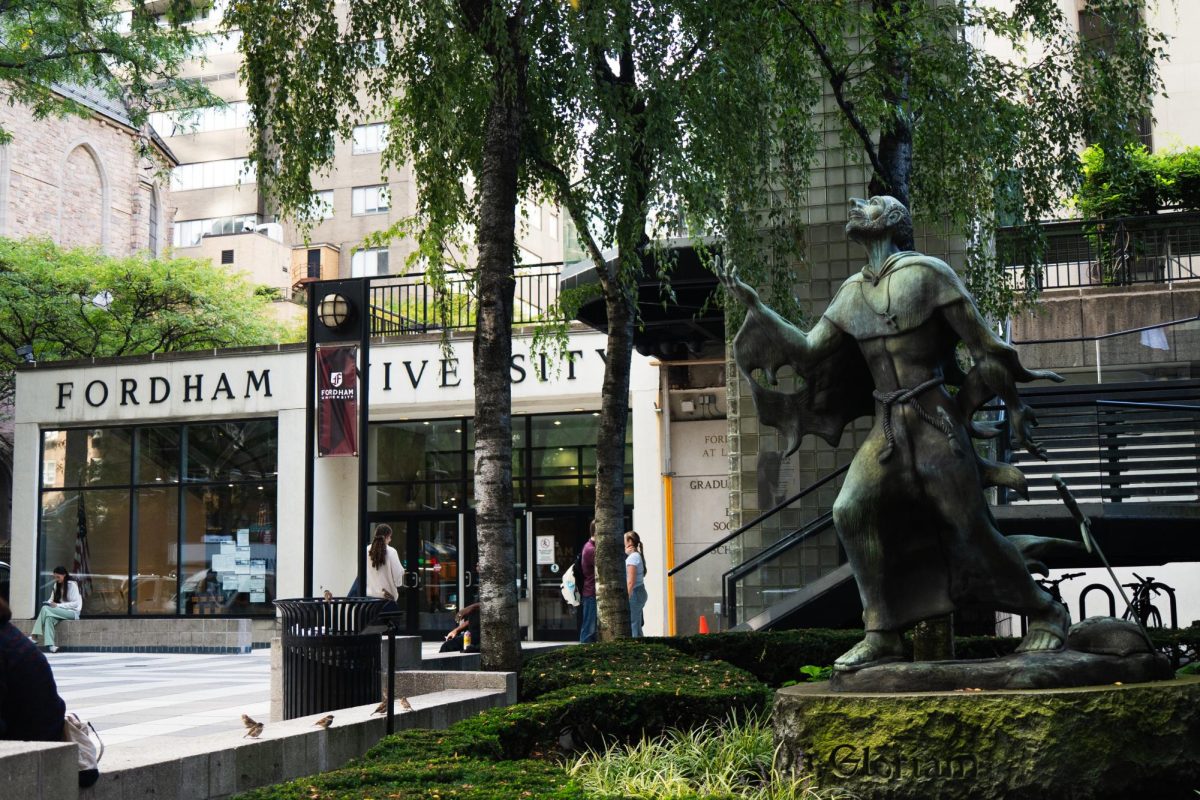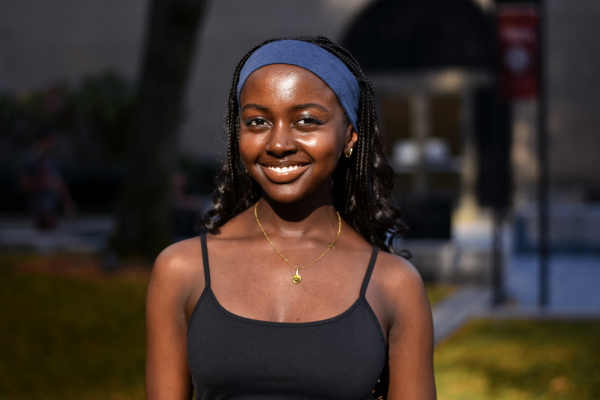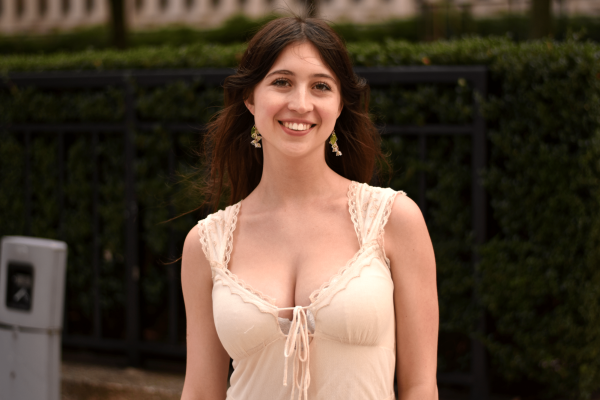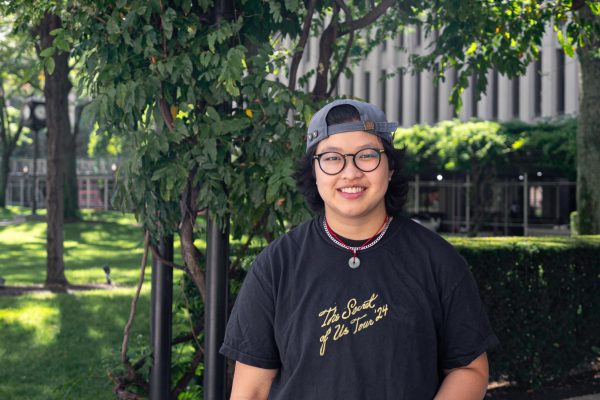Fordham students, faculty and staff continue to uphold Ignatian values through civic engagement on a personal, university, citywide and international level. The “Common Grounds Conversation: Living the Mission” panel outlined how such members live out Fordham’s Jesuit mission through their work in the Bepler Commons on the Rose Hill Campus on Oct. 2.
The panelists discussed their personal experiences and how they guide students in mission-based living, followed by break-out sessions allowing attendees to reflect on guiding questions such as: “Reading Fordham’s mission statement, what stands out to you?” and “What concrete steps can we take to advance Fordham’s mission?” Being a Jesuit university, civic service and the promotion of social justice have long-standing roots in Fordham’s core values and mission. For many students, faculty and administrators, this is a daily lived reality.
John Cecero, vice president of mission integration and ministry and a panelist, described his interpretation of the Jesuit call to action as one of both personal faith and external engagement. He noted that these values are a common thread running through nearly all aspects of Fordham life.
“I think Fordham makes every effort in the classroom, in the research labs, in relationships between faculty and students and all of the services that we provide … to strengthen and sustain our Jesuit identity and mission.” John Cecero, Vice President of Mission Integration and Ministry
“I live out my Jesuit mission first of all by maintaining a familiar relationship with God … then by engaging with people and students, and faculty and staff,” Cecero said. “I think Fordham makes every effort in the classroom, in the research labs, in relationships between faculty and students and all of the services that we provide … to strengthen and sustain our Jesuit identity and mission.”
Eleanor Smith, Fordham College at Rose Hill ’26, attended the event and shared a similar perspective on how the Ignatian emphasis on civic service affects her daily life as an individual, and specifically as a Fordham student.
“As a Jesuit school, Fordham does a lot to instill the Jesuit mission in its students … there are a lot of service opportunities and spiritual opportunities, both on and off campus,” Smith said. “I live the Jesuit mission in my everyday life by venturing out into the world outside of Fordham and just interacting with people and taking opportunities that I find to make the world a better place.”
This outreach is seen at Fordham in ways both small and large.
“One way that we can improve or increase this would be through our global partnerships with the Jesuit universities that exist throughout the country and around the world.” John Cecero, Vice President of Mission Integration and Ministry
The Pedro Arrupe Volunteers (PAV) is a Bronx-based, student-led organization that coordinates direct service and engagement programs. In the last month, PAV has held volunteer events like a clean-up project at Moshulu Park in the Bronx, preparing backpacks to donate to students in need, volunteering at the Belmont Catholic Community Center to help with an event celebrating Latine heritage and more.
Fordham has several other long-standing partnerships with local nonprofits, including the Church of Our Lady of Mercy, Part of the Solution and Creston Avenue Baptist Soup Kitchen in the Bronx, and St. Paul the Apostle’s Loaves and Fishes food pantry and Xavier Mission in Manhattan.
The Fordham community’s civic service efforts extend globally, past local city programs. Cecero expressed hope that deepening global partnerships with other Jesuit universities could further extend Fordham’s mission.
“One way that we can improve or increase this would be through our global partnerships with the Jesuit universities that exist throughout the country and around the world,” Cecero said.
On Aug. 4, the Global Research Alliance of Jesuit Universities (GRAJU) was formally established. Fordham is one of the seven founding Jesuit institutions around the world. GRAJU aims to deepen global collaboration on solution-focused, interdisciplinary research in service of leveraging Ignatian values to address global concerns. The organization’s work will kick off with an inaugural symposium in March discussing how emerging AI technologies can be leveraged toward positive change, and how this relates to the particulars of a Jesuit education.
Fordham also has a Global Outreach program that has been active since 1962, organizing immersion service trips for students. One upcoming program is the winter trip to Arizona to assist the Kino Border Initiative, a Jesuit organization focusing on humanitarian assistance and holistic accompaniment of migrants.
Smith praised the many service programs and the spirit of social justice abound on campus, but suggested that the university can do even more outreach to get non-Fordham community members involved.
“Something that I think that Fordham could do to improve their Jesuit mission is to increase access to Fordham’s resources for people who aren’t connected to the Fordham community yet,” Smith said. “One way that they could do this is by hosting more events on campus that are open to people who are not from Fordham and then advertising them and making it easier for people to come onto the campus through the gates.”
Fordham’s service programs and collaborations continue to expand — anchored in reflection, service and justice — and ever-mindful of emerging needs. From serving in New York City to international collaborations, the Fordham community upholds its commitment to the Jesuit mission in modern ways.




